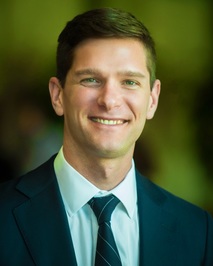 Brad Rathgeber, Executive Director Brad Rathgeber, Executive Director A couple of weeks ago I was in Las Vegas for the annual Sloan Consortium Emerging Technologies Conference. And, I have to say, it was fascinating experience. The theme of the conference was (probably no surprise to those following educational technology trends over the last number of years) the personalization of the educational experience. I went to the conference with a particular focus: to explore data analytics and the work coming out of colleges and universities to advance this field. I know that data analytics hold great promise for K-12 education, and yet I’ve been wrestling with their place within the independent school environment. For generations now, we have told families: “we know your son/daughter; we know how they learn; we will give them the personalized attention and support that they need to succeed.” And yet, we can all admit that even with our low student-teacher ratios, our advising systems, and our tight-knit communities, we do still have students who “fall through the cracks” every so often, despite our best efforts. I went to Vegas to see if there was anything that we could be doing to ensure that students don’t fall through the cracks, but more importantly, to see if there was anything more that we can do to predict which students might be on the verge of falling through the cracks in our classes and prevent that from occurring. The answer seems to be both yes and no. One of the most interesting and anticipated sessions of the conference was on the preliminary findings of the “Predictive Analytics Reporting Framework.” This project, funded by the Gates Foundation, was formed to try to determine whether there were predictive analytics across schools that could help determine student success in online courses – that is: are there any data points across many schools that can help predict the success of students before success or failure becomes apparent. The goals of the project are noble: to figure out ways to increase graduation rates, lower drop-out rates, and help students succeed. The findings so far: while each school might be able to identify predictive analytics for their campuses (and many do), the study has yet to find predictive measures valid across all campuses. That said, it was also clear to the researchers that different learning environments create important variables on the institutional level. In other words, student success is greatly impacted by the academic environment created by schools (I am sure a few of you are thinking, “well you didn’t have to go to Las Vegas to understand that, Brad”). And yet, within schools data points can be developed to understand when a student is going to falter before failure occurs so that there can be an intervention from the start. My primary take-aways from the conference focused on what advantages and challenges independent schools have in thinking about using data more effectively to enhance student learning outcomes and greater personalize their educational experience:
0 Comments
Leave a Reply. |
Don't miss our weekly blog posts by joining our newsletter mailing list below:AuthorsBrad Rathgeber (he/him/his) Archives
July 2024
Categories |

 RSS Feed
RSS Feed